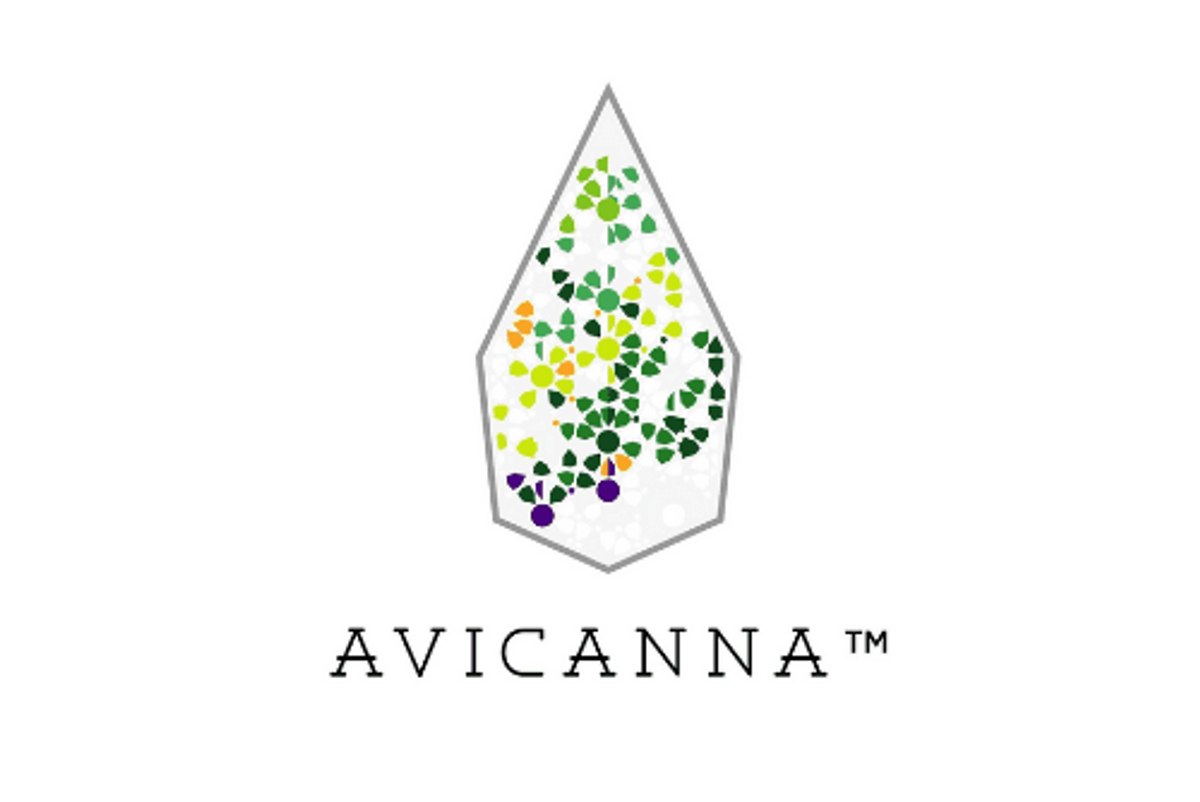- Initial listings of topical SKUs include 3 Pura Earth branded facial topical products and 1 RHO Phyto branded Extra Strength Deep Tissue Gel
- Avicanna's leadership in the emerging category of topicals, with listings now in 5 provinces, is attributed to the proprietary functional formulations and clinical evidence behind the products
/NOT FOR DISTRIBUTION TO UNITED STATES NEWSWIRE SERVICES OR FOR DISSEMINATION IN THE UNITED STATES. ANY FAILURE TO COMPLY WITH THIS RESTRICTION MAY CONSTITUTE A VIOLATION OF UNITED STATES SECURITIES LAWS/
Avicanna Inc. (" Avicanna " or the " Company ) (TSX: AVCN) (OTCQX: AVCNF) (FSE: 0NN) a biopharmaceutical company focused on the development, manufacturing, and commercialization of plant-derived cannabinoid-based products is pleased to announce that its RHO Phyto and Pura Earth branded topicals have attained initial listings and commenced sales in the Canadian province of Alberta.
As part of the development process, Avicanna's topicals have gone through various pre-clinical and clinical evaluation before being released to the market. These complex and proprietary topical products are developed through Avicanna's renowned R&D platform and formulated to deliver cannabinoids with synergistic natural active ingredients with long term shelf-life stability, consistency, and enhanced absorption. Avicanna's topical formulations are developed starting with the cannabinoids in the oil phase – a process that is critical in preventing degradation, ensuring homogeneity, and increasing absorption of cannabinoids into the skin. Avicanna's research team brings years of product development and topical formulation expertise and have developed dozens of SKUs of cosmetics, medical and pharmaceutical preparations that available in several countries.
Aras Azadian, Avicanna's CEO, commented: "We are thrilled to enter another major Canadian province with several of our proprietary products and two of our brands. With the emergence of cannabis 2.0 products, the market has been saturated with low quality products such as topicals, which are often produced by infusing cannabis extract into a preformulated based cream. This has been to the detriment of emerging wellness segment within the Canadian cannabis industry and a source of disappointment to the consumers who have high expectations for such products. Our market approach is to deliver these proprietary products with the support of appropriate education and training to all stakeholders. This approach will be a driving force in the establishment and growth of the wellness category and market for functional cannabinoid-based products."
Pura Earth Products Overview
An advanced and clinically tested line of CBD consumer derma-cosmetic products, these unique formulations are THC-Free, dermatologist tested for irritation, cruelty-free and vegan. The fast-absorbing, formulas combine pure CBD with natural ingredients providing functional benefits for specific needs. Pura Earth products fit into any daily self-care routine and can be used in conjunction with other skincare products.
RHO Phyto Extra Strength Deep Tissue Gel Overview
The gel is part of the most complete and advanced medical cannabis formulary including oral, sublingual and topical products with proven success in the medical channels across Canada, including Medical Cannabis by Shoppers, and the first formulary to be available in a major Canadian hospital, Sunnybrook Health Sciences Center in Toronto.
The advanced emulsion formula has proven deep tissue delivery and increased absorption into deeper layers of the skin. The fast-absorbing, water-based formula synergistically combines cannabinoids and functional natural terpenes including menthol and clove oil which contains eugenol and beta-caryophyllene. This formulation is currently in ongoing preclinical studies evaluating the efficacy of the Deep Tissue gel for attenuating pain and inflammation in osteoarthritis. In addition, the gel is enrolled in the observational Medical Cannabis Real World Evidence Study for patients with chronic pain conducted by the University Health Network.
About Avicanna
Avicanna is a diversified and vertically integrated Canadian biopharmaceutical company focused on the research, development, and commercialization of plant-derived cannabinoid-based products for the global consumer, medical, and pharmaceutical market segments.
Avicanna is an established leader in cannabinoid research and development, which it primarily conducts at its R&D headquarters in the Johnson & Johnson Innovation Centre, JLABS @ Toronto, Canada and in collaboration with leading Canadian academic and medical institutions. In addition to its developing pharmaceutical pipeline, Avicanna's team of experts have developed and commercialized several industry leading product lines, including:
- Pura H&W™: an advanced and clinically tested line of CBD consumer derma-cosmetic products; and,
- RHO Phyto™: an advanced line of medical cannabis products containing varying ratios of CBD and THC currently available nation-wide across Canada in partnership with Medical Cannabis by Shoppers™, a subsidiary of Shoppers Drug Mart. RHO Phyto is the first strictly medical formulary of advanced "Cannabis 2.0" products, containing oils, sprays, capsules, creams, and gels, all developed with scientific rigour, manufactured under GMP standards and supported by pre-clinical data.
With ongoing clinical studies on its derma-cosmetic (Pura H&W), medical cannabis (RHO Phyto) and a pipeline of pharmaceutical products, Avicanna's dedication to researching the important role that cannabinoids play in an increasingly wider scope of products has been at the core of the Company's vision since its inception. Furthermore, Avicanna's commitment to education is demonstrated through its annual medical symposium, the Avicanna Academy educational platform, and the My Cannabis Clinic patient program through its subsidiary company.
Avicanna manages its own supply chain including cultivation and extraction through its two majority-owned subsidiaries, Sativa Nativa S.A.S. and Santa Marta Golden Hemp S.A.S., both located in Santa Marta, Colombia. Through these sustainable, economical, and industrial scale subsidiaries, Avicanna cultivates, processes, and commercializes a range of cannabis and hemp cultivars dominant in CBD, CBG, THC, and other cannabinoids for use as active pharmaceutical ingredients. Avicanna's Avesta Genetica program specializes in the development and optimization of rare cultivars for commercial production along with feminized seeds for global export. In June 2020, Avicanna made history with a shipment of hemp seeds to the United States of America by completing the first ever export of hemp seeds from Colombia.
SOURCE Avicanna Inc.
Stay Connected
For more information about Avicanna, visit www.avicanna.com , call 1-647-243-5283, or contact Setu Purohit, President by email at info@avicanna.com .
The company posts updates through videos from the official company YouTube channel https://www.youtube.com/channel/UC5yBclNIsNf7VrE34iwt8OA .
Cautionary Note Regarding Forward-Looking Information and Statements
This news release contains "forward-looking information" within the meaning of applicable securities laws. Forward-looking information contained in this press release may be identified by the use of words such as, "may", "would", "could", "will", "likely", "expect", "anticipate", "believe, "intend", "plan", "forecast", "project", "estimate", "outlook" and other similar expressions, and includes statements with respect to the Company's ability to continue selling RHO Phyto and Pura Earth products in any province in Canada, the Company's ability to continue selling topical products in any province in Canada, the Company's ability to develop topical or other cannabinoid products, and the Company's ability to continue to deliver any products to provincial retailers. Forward-looking information is not a guarantee of future performance and is based upon a number of estimates and assumptions of management in light of management's experience and perception of trends, current conditions and expected developments, as well as other factors relevant in the circumstances, including assumptions in respect of current and future market conditions, the current and future regulatory environment; and the availability of licenses, approvals and permits. Although the Company believes that the expectations and assumptions on which such forward-looking information is based are reasonable, undue reliance should not be placed on the forward-looking information because the Company can give no assurance that they will prove to be correct. Actual results and developments may differ materially from those contemplated by these statements. Forward-looking information is subject to a variety of risks and uncertainties that could cause actual events or results to differ materially from those projected in the forward-looking information. Such risks and uncertainties include, but are not limited to current and future market conditions, including the market price of the common shares of the Company, and the risk factors set out in the Company's annual information form dated April 15, 2020, and final short form prospectus dated November 27, 2020, filed with the Canadian securities regulators and available under the Company's profile on SEDAR at www.sedar.com .The statements in this press release are made as of the date of this release. The Company disclaims any intent or obligation to update any forward-looking information, whether as a result of new information, future events or results or otherwise, other than as required by applicable securities laws.
A photo accompanying this announcement is available at https://www.globenewswire.com/NewsRoom/AttachmentNg/5fde8b9e-8b26-47b6-af73-df1011f06294


